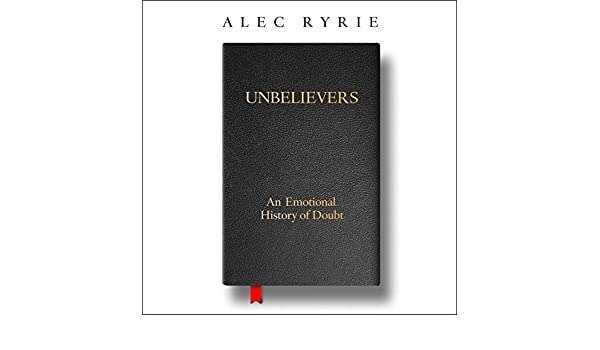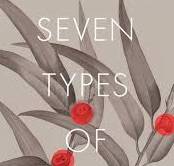
Unbelievers: An Emotional History of Doubt (William Collins) by Alec Ryrie
Imagine the reaction if a humanist wrote a book speculating on the emotional drivers of contemporary Christian belief, based not upon research of Christians but of Jewish, Ebionite and Marcionite thought in the first three centuries of the common era. Such a work would be dismissed as deeply unscholarly and shedding little authentic light on the Christian religion. And yet this is what Alec Ryrie has done in his account of the emotional history of doubt, called Unbelievers. Think of pretty well any list of the top twenty atheist or humanist thinkers since the Enlightenment; none of them will be there.
So what’s going on? How should we respond to this work? The first thing to say is that Unbelievers is not a hatchet job. Though identifying as a Christian, Ryrie professes to actually quite like many unbelievers, even preferring them to some of his co-religionists. Alec Ryrie is a very senior scholar, currently professor of the history of Christianity at Durham University and professor of divinity at Gresham College, London, and, since 2019, a Fellow of the British Academy. That said, his methodology does require some explanation. Ryrie overlooks virtually all unbelievers in a history of unbelief because what he’s really trying to do is account for its origin. Three quarters of the book is an account of various strands of unorthodox and radical Christian thought in the sixteenth and seventeenth centuries. It is Ryrie’s view that unbelief emerged out of Reformation Protestantism. It’s not a new idea by any means, but his steering away from any serious engagement with people’s arguments is.
Ryrie’s account of origins has nothing to do with what people believe. It is about their emotional drives. He identifies two prime drivers: anger and anxiety. ‘The emotional history of Western atheism, then, is not a story of an external assault on Christianity. It is a story of Christians and post-Christians attacking from within, and doing so from the moral high ground.’ (page 6) He arrives at, for him, an acceptable conclusion. ‘In the modern age, the majesty and strangeness of the cosmos still has a powerful emotional tug, but that tug has usually been towards atheism rather than towards God. Neither emotional reaction is ‘correct’.’ (page 133) And so long as the tug is purely emotional, he may well have a point. But one can’t help suspecting this is a post facto justification from someone whose side has lost the argument.
Toward the end of the book, Ryrie suddenly takes an interest in humanist ideas, if only to dismiss them. Like many contemporary Christian thinkers, and in the manner of John Gray, Ryrie sees modern humanism as little more than a melange of warmed-over nostrums taken from Christianity. He also has a low view of a lot of humanist scholarship, citing as an example the few but noisy advocates of a mythical Jesus. While not impossible, it is, he says, "pretty implausible: in effect, it requires the existence of a large-scale, entirely successful and oddly pointless conspiracy in the first century." Ryrie is right about this, of course. Mythical Jesus advocates offer an all-too easy excuse for believers to sideline more respectable scholarship elsewhere.
No attention is given to the uncomfortable implication of his view on humanism. Ryrie offers no reason why his claim that humanism is a child of Protestant Christianity should not be applied equally to Christianity which is, after all, a mix of Platonism and Stoicism, overlaying and then vilifying its Hebrew origins. If this is historically correct, as I imagine Ryrie would broadly admit it is, then humanism being a successor world view to Christianity doesn’t really count as a claim against it.
To his credit, Ryrie does not rest his laurels on an easy victory over the mythical Jesus sideshow and conclude that Christianity is therefore as strong as ever. "Western Christendom", he writes, "is not about to snap back into place. The contemporary humanist surge is not a blip or an anomaly, but a continuation of moral forces that have been at work within the Christian world for centuries." In placing humanism as a successor to and child of Christianity, he is trying to mitigate the pain.

